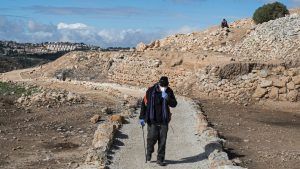Wajahat Ali in The Atlantic:
 I grew up eating Hebrew National kosher hot dogs in my Fremont, California, home. Back then, halal meat was alien to the local supermarket, so Jewish dietary restrictions came to the rescue of an overweight Pakistani American kid. Straightforward anti-Semitism was not taught in my Muslim household or in weekend Koran classes. My father never dusted off The Protocols of the Elders of Zion from the living-room bookshelf. Instead, I carpooled to an all-male Jesuit high school with my Jewish neighbor Brian, with whom I never debated the implications of the wars of 1948 or 1967, but with whom I did regularly have heated exchanges about the merits of Star Trek: The Next Generation versus Star Trek: Deep Space Nine.
I grew up eating Hebrew National kosher hot dogs in my Fremont, California, home. Back then, halal meat was alien to the local supermarket, so Jewish dietary restrictions came to the rescue of an overweight Pakistani American kid. Straightforward anti-Semitism was not taught in my Muslim household or in weekend Koran classes. My father never dusted off The Protocols of the Elders of Zion from the living-room bookshelf. Instead, I carpooled to an all-male Jesuit high school with my Jewish neighbor Brian, with whom I never debated the implications of the wars of 1948 or 1967, but with whom I did regularly have heated exchanges about the merits of Star Trek: The Next Generation versus Star Trek: Deep Space Nine.
Growing up, I was taught that Christians and Jews were considered “People of the Book,” part of the same Abrahamic tradition as Muslims. But the specter of Israel, the suffering of Palestinians, and the occupation of Jerusalem in particular loomed large in conversations at home and in the religious teachings I received. When visiting Pakistan, I heard relatives and friends lament how “the Jews” oppressed “the Muslims.” In America, the Muslims I knew discussed their envy of Jewish power and influence: If only we Muslims were as organized and strategic as the Jews, we could replicate their success. Among my community, respect for the Jews’ mythical status as the magical minority was its own subtle form of anti-Semitism. Sometimes my dad would read aloud the credits at the end of a movie and say, “Spielberg … Jewish. Cohn … Jewish. Adelstein? Definitely Yehudi! See, Wajahat, if Jews can dominate Hollywood, there’s no reason you can’t!”
As an undergraduate at UC Berkeley, I was a member of the Muslim Student Association. I recall listening to more passionate khutbahs—Friday sermons—about the injustices in Palestine than stories about the Prophet Muhammad and his companions. The conflict in the Holy Land superseded all other Muslim suffering, including the ongoing occupation of Kashmir, the repression of Chechen Muslims, and the daily racism experienced by many African-American Muslims. I became a bit actor in a never-ending cosmic drama. I would parrot a script written by others, and serve as a proxy soldier for a tragedy happening across the Atlantic. The Jewish kids from the campus Hillel were my foil. We showed up to “debates,” predictable affairs where each side cheered and booed when appropriate but rarely engaged in a constructive dialogue.
We marched, chanted, rallied. We wore zionism is racism T-shirts. We thought we were differentiating Judaism from Zionism, the political ideology espoused by Theodor Herzl at the turn of the 20th century, which argued for the creation of a Jewish state in the Jews’ ancestral homeland of Israel. But too few of us Muslims bothered to ask how the many American Jews who consider themselves in some way Zionist felt upon hearing that Zionism was racism.
More here.
